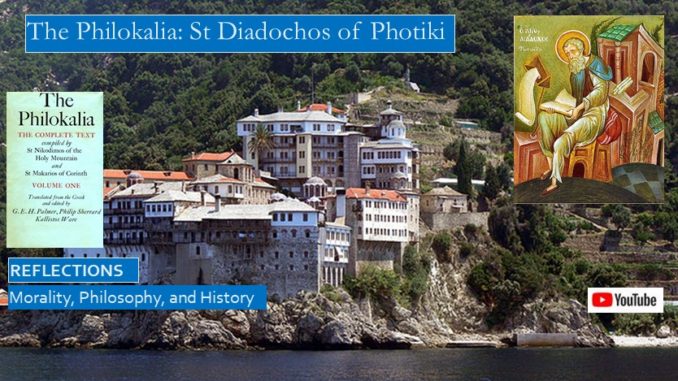
St Diadochos reminds us that our Christian lives should center on Loving God and loving our neighbor as ourselves, that we Love God and we love our neighbor both with our heart and with our intellect. We are able to truly Love God through the grace imparted by the Holy Spirit, and the Holy Spirit also sharpens the divine focus of our intellect, so we can let God enter into our heart and mind.
YouTube video: https://youtu.be/ovpHoM29mWQ
Blog 1 of this series: http://www.seekingvirtueandwisdom.com/st-diadochos-of-photiki-blog-1-on-spiritual-knowledge/
THE HOLY SPIRIT HELPS US TO LOVE GOD
St Diadochos teaches us, “Only the Holy Spirit can purify the intellect,” to guard our soul against evil “we must make ourselves a dwelling place for the Holy Spirit.”(28) We tend to think of the Holy Spirit as the emotional aspect of God, but St Diadochos teaches that the Holy Spirit strengthens the intellect, “when we practice self-restraint, the intellect longs to pursue heavenly beauty.”(29)
When the Holy Spirit takes a hold of us, do we no longer need to strive towards God, do our emotions overpower us, so the Christian life becomes automatic? No, we must always be attentive when living our lives in this imperfect world, the Holy Spirit strengthens our strivings toward the holy, but we must strive, as St Diadochos teaches that the “intellect, when it has triumphed over the thoughts of the flesh, knows for certain when it is tasting the grace of the Holy Spirit, for it is written in Psalm 34, Taste and see that the Lord is good.(30)
St Diadochos teaches that when “the energy of the Holy Spirit is within us,” “the soul is kindled into Love for God and, free from all fantasy and image, moves untroubled by doubt towards Him, drawing the body with it into the depths of that ineffable love.”(33) “The Love which comes from the Holy Spirit so inflames the soul that all its parts cleave ineffably and with utter simplicity to the delight of its love and longing for the divine.”(34)
QUIET SPIRIT AND PRAYER LEADS US TO LOVE GOD
Scholars see in the writings of St Diadochos the beginnings of the Jesus Prayer, the prayer we can pray in our quest to pray without ceasing, “Lord Jesus Christ, have mercy on me, a sinner”, the prayer that monks would pray dozens or hundreds or thousands of times, a prayer we can pray as we think of God during our day, or when traffic is bad, or people irritate us, or when we have trouble falling asleep, a prayer to help us through the day. St Diadochos teaches, “those pursuing the spiritual way must always keep the mind free from agitation” so the intellect can discriminate between the good thoughts that have been sent by God and the evil thoughts from the devil, so we can remember the good thoughts we should treasure in our hearts.
St Diadochos has a beautiful analogy of the fishermen who can see the schools of fish swimming in the depths when the sea is calm, but when the “sea is disturbed by the winds” you see only turbid and agitated waves, and you can see nothing else below.(26) “Very few men can see their own faults, only those men whose intellect is never torn away from the remembrance of God” can see their faults clearly.(27)
When writing on the Philokalia I feel that perhaps I should repeat excerpts and not say anything more at all, and this is particularly true when St Diadochos teach us about praying the name of Jesus, our intellect, when seeking to remember God, we need to do “nothing but say the prayer, ‘Lord Jesus’. As is written in 1 Cor 12:3, ‘No one can say Lord Jesus except in the Holy Spirit.’ Let the intellect continually concentrate on these words within its inner shrine with such intensity that it is not turned aside to any mental images. Those who meditate unceasingly upon this glorious and holy name in the depths of their heart can sometimes see the light of their own intellect. When the mind closely concentrates upon this name of Lord Jesus, then we grow fully conscious that the name is burning up all the filth which covers the surface of the soul, as it is written, ‘Our God is a consuming fire.’(Deut 4:24) Then the Lord awakens in our soul a great Love for His glory; for when the intellect with fervor of heart repeats His precious name, then His name implants in us a constant love for its goodness, since there is nothing now that stands in the way. This is the pearl of great price which a man can acquire by selling all that he has, and so experience the inexpressible joy of making it his own. (Matt 13:46)”(59)
Here we see St Diadochos teaching us that when we pray, we pray in the Holy Spirit, we pray with our intellect to pray with our heart, that the proper training in the intellect makes the heart grow fonder of our Lord. Our intellect is what separates us from the passions that can drag us down to the level of the beasts of the field. We should seek to Love God with all that makes us humans, made in the image of God, we should seek to Love God with all of our heart and with all of our soul and with all of our strength and with all of our mind, heart and soul and mind are bound together, like vines growing together on a trestle.
What keeps us from the remembrance of God? St Diadochos teaches us that our “intellect cannot hold fast to the remembrance of God no matter how hard we try when our soul is disturbed by anger, confused by drunkenness, or sunk in deep depression.” Lord, may we not allow our soul to be disturbed by our anger against our neighbor, may we always be eager to forgive our neighbor his faults, so anger never clouds our soul. “Since we are but children regarding perfection in the virtue of prayer,” we pray that we have the “Holy Spirit’s aid so all our thoughts may be concentrated and gladdened by the inexpressible sweetness of Jesus, so that with all our being we may aspire to the remembrance and Love of our God and Father.”(61)
St Diadochos teaches us in many paragraphs that we should not allow our lives to revolve around seeking justice when our enemies wrong us. He teaches us that “it is better to endure the lawlessness of those who wish to wrong us, and to pray for them, so that they may be released from their guilt through repentance, rather than seeking to recover what they have taken. Divine justice requires that we receive back not the objects of the theft, but the thief himself, freed through repentance from sin.”(64) “It is much better to lament the insensitivity of the unjust than to hate them; for even should they deserve our hatred, it is senseless for a soul which Loves God to be disturbed by hatred, since when hatred is present in the soul spiritual knowledge is paralyzed.”(71)
This reminds me of my favorite story about the stoic philosopher Epictetus. Epictetus tells us of someone who stole his lamp one night, he got the better end of the exchange. For Epictetus only lost his lamp, but he kept his faith. The man who stole his lamp, in exchange for the lamp he consented to become a thief, becoming faithless.[1]
The good St Diadochos even wants to beat up on me when he teaches that “our intellect often finds it hard to endure praying because of the straitness and concentration which this involves, but it joyfully turns to theology because of the broad and unhampered scope of divine speculation. To keep our intellect from expressing itself too much in words or exalting itself unduly in its joy, we should spend most of our time in prayer, in singing psalms and reading the Holy Scriptures, yet without neglecting the speculations of wise men whose faith has been revealed in their writings.”(68) Study less, pray more, study of prayer must lead us to pray.
ON DREAMS AND VISIONS
The Church Fathers do not say that divine visions are impossible, only that it is spiritually unwise to seek visions, indeed it is foolish to seek visions, for it can be difficult to discern between angels of light and angels of darkness masquerading as angels of light, since the deceiver can peer into the darkness of our heart, knowing what chatter will flatter, what holy sounding deceptions that we really want to hear. As St Diadochos teaches us, “dreams are generally nothing more than images reflection our wandering thoughts, or else they are the mockery of demons. If ever God in His goodness were to send us some vision and we were to refuse it, our beloved Lord Jesus would not be angry at us, for He would know we were acting in this way because of the tricks of the demons.”(38)
St Diadochos teaches us that the dreams we dream through our Love for God and God’s love “with great gentleness approach our soul and fill it with spiritual gladness.” When we awaken from these pleasant dreams our “soul longs to recapture the joy given to it by the dream.”(37)[2]
Why do we dream? The Lord may have spoken to Joseph through his dreams, but the Church Fathers say that Jesus is okay if we disregard any divine revelations made during our dreams for fear they are merely delusions. Do our dreams mirror our subconscious? Or are our dreams merely a random replaying of our thoughts, as many scientists suspect?
The Church Fathers clearly teach that not only can control our passions during our waking hours, but when can even control them in our sleep. We may be less enthusiastic about our nocturnal control with our scientific knowledge today, but we can certainly be sure to make nightly prayers a habit so we go to sleep with any anger in our souls, as St Paul exhorts us:
“So then, putting away falsehood, let all of us speak the truth to our neighbors, for we are members of one another. Be angry but do not sin; do not let the sun go down on your anger, and do not make room for the devil.”[3]
We should never nurture our anger or impatience with our neighbor, rather we should nurture patience and love and compassion.
[1] http://www.seekingvirtueandwisdom.com/epictetus-discourses-blog-2/
[2] St Diadochos of Photiki, “On Spiritual Knowledge,” in the Philokalia, The Complete Text, compiled by St Nikodimos of the Holy Mountain and St Makarios of Corinth, Volume 1, translated and edited by GEH Palmer, Phillip Sherrard, and Kallistos Ware (London: Faber and Faber, 1979), pp 252-296.
[3] https://www.biblegateway.com/passage/?search=ephesians+4%3A25-27&version=NRSVCE

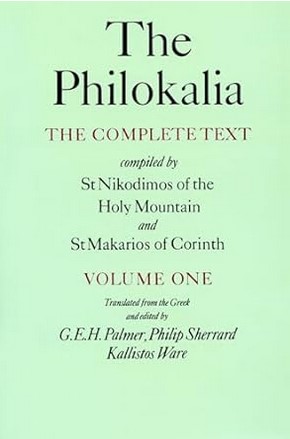
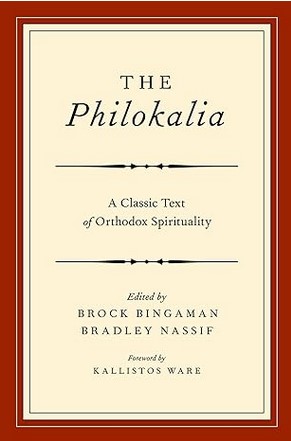

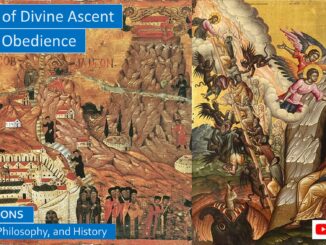
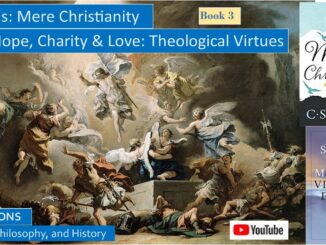
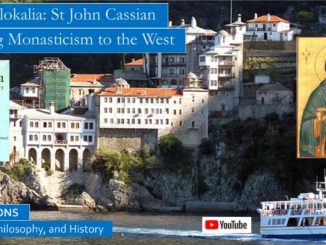
1 Trackback / Pingback